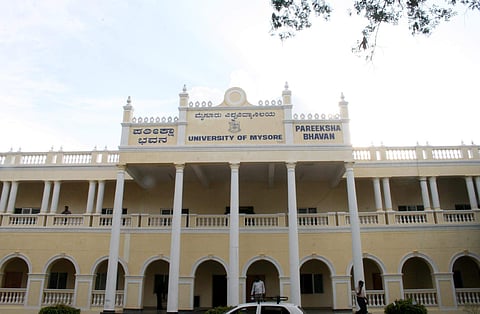

A new anti-cancer drug combination invented by KS Rangappa, Vice-Chancellor, University of Mysore and Basappa, faculty from the varsity's laboratory of chemical biology, in association with scientists from Bengaluru and the National University of Singapore has received a patent from the United States of America. This combination can be used to treat endometrial cancer.
The US patent was received for small molecule inhibitors of BCL-2-Associated death promoter (BAD) phosphorylation drug.
Basappa said, "The lab finds combining NPB (commercialising drug, originated from India) and Olaparib drugs completely arrested the growth of human endometrial cancer organoids."
"Endometrial cancer (EC), a uterine corpus cancer, is the most common type of gynecologic cancer. A woman's chances of getting endometrial cancer increase as the cells in her endometrium (uterine lining) grow out of control. As per the GLOBOCAN estimates, there are nearly 12.7 million new cancer cases and 7.6 million cancer deaths which occurred in 2008. worldwide. In India, there are 0.88 million cancer cases with an incidence rate of 105.5 per 1,00,000 women," he said.
"In view of the fact that drugs were also used to treat endometrial cancer, we devised a new drug combination to kill recurrent EC by targeting two primary events, namely, poly (ADP-ribose) polymerase enzyme and bcl2 antagonist of cell death (BAD) protein phosphorylation," he said.
"We had previously identified NPB as a commercialising molecule that inhibits BAD phosphorylation. We also found that elevated levels of BAD phosphorylation is associated with the progression of endometrial cancer when compared to normal endometrial specimens. Herein, the combination of NPB and olaparib drug was treated against human patient-derived endometrial cancer organoid and found to completely arrest the growth," he said.
